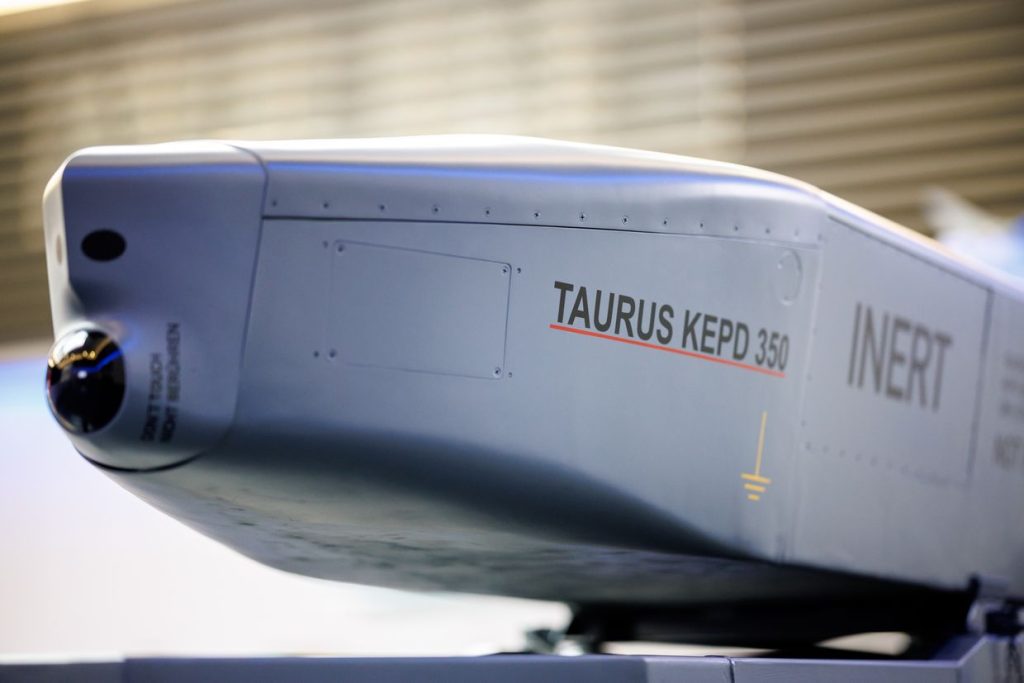Ukraine has been urging its allies, including Germany, to send long-range missiles to aid in the fight against Russian forces in the ongoing conflict. Defense Secretary Grant Shapps of the UK has specifically called for the delivery of long-range missiles and the permission for Ukraine to target facilities in Russian-occupied Crimea. While Ukraine has already received some long-range missiles from the UK and France, reports have emerged that the US has also sent over 100 long-range ATACMS missiles to Kyiv. However, German Chancellor Olaf Scholz has been hesitant in providing these missiles to Ukraine, fearing that it may entangle Berlin in the conflict.
The Taurus missile, a joint German-Swedish creation with a range of over 500 kilometers, is among the desired weapons that Ukraine hopes to receive. The Storm Shadow and SCALP missiles currently in Ukraine’s possession, as well as the newer models of ATACMS, have a range of up to 300 kilometers and are designed to target buried and protected installations. These advantages would enable Ukraine to strike deeper inside occupied territory, including the strategically important Crimean Bridge. However, the increased range of these missiles also raises concerns about strikes deep into Russian territory, a scenario that Germany is wary of supporting.
Chancellor Olaf Scholz has consistently rebuffed calls to provide Ukraine with the Taurus long-range missile, emphasizing the importance of prudence in the decision-making process. Despite pressure from lawmakers and allies, Scholz remains firm in his stance against delivering such weapons to Ukraine. The reluctance of Germany and other allies to supply long-range missiles stems from the potential escalation of the conflict and the risks of becoming directly involved in the war. This cautious approach reflects the complexities and delicate balance of international relations in the current geopolitical landscape.
The delivery of long-range missiles to Ukraine remains a contentious issue, with differing perspectives and interests at play among the allies. While some, like Defense Secretary Grant Shapps, advocate for providing these weapons to bolster Ukraine’s defense capabilities, others, including Chancellor Olaf Scholz, exercise caution in order to avoid exacerbating the conflict. The reluctance to supply long-range missiles highlights the challenges faced by international actors in navigating the complexities of the Ukraine-Russia conflict and balancing strategic interests with the imperative of preventing further escalation.
The strategic significance of the Taurus missile and other long-range weapons in Ukraine’s arsenal underscores the country’s determination to defend its sovereignty and push back against Russian aggression. The ability to target critical infrastructure and military installations in occupied territories demonstrates Ukraine’s need for advanced military capabilities to counter the threat posed by Russia. As the conflict continues to evolve, the question of arms support for Ukraine remains a contentious issue that requires careful deliberation and collaboration among allies to mitigate risks and uphold international security.
In the face of escalating tensions and continued aggression in the region, the support of independent journalism in Ukraine becomes paramount. By staying informed and engaged with the latest developments, individuals can play a crucial role in advocating for transparency, accountability, and the protection of democratic values. Joining the fight to support independent journalism in Ukraine is not only a means of standing in solidarity with the Ukrainian people but also a vital step towards promoting truth and democracy in the face of disinformation and propaganda. Together, we can uphold the principles of a free press and foster a more informed and just society.


